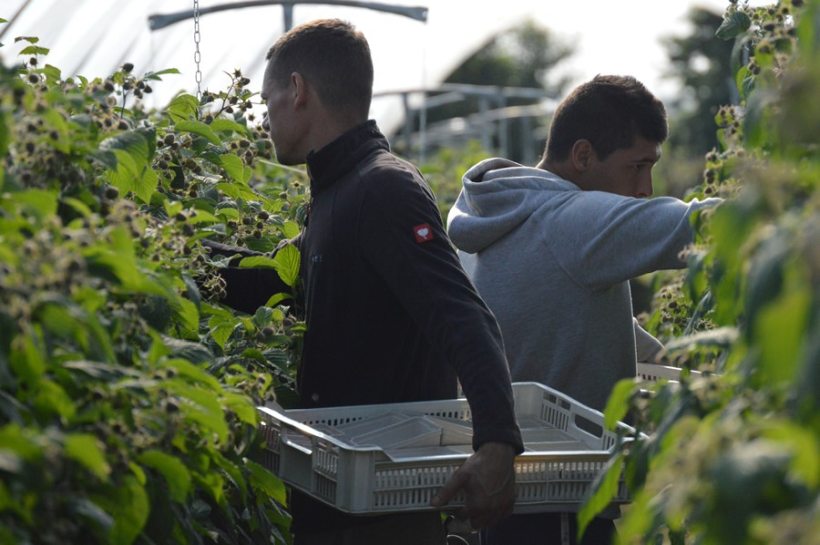
Attracting workers is critical if Scottish farming is to thrive in the future, NFU Scotland has said as the sector continues to face serious labour issues.
The union has today urged the Scottish government to work with the agricultural sector on measures that enables the farming community to attract more workers.
These could include supporting training and skills development, the adoption of new technologies and positively promoting agri-food career opportunities.
The impact of the ongoing labour crisis, affecting both permanent and seasonal staff, is being widely felt among the Scottish farming industry.
A recent survey of NFU Scotland’s soft fruit and vegetable growers estimated that there is a 20 percent shortfall in seasonal workers.
Jamie Hepburn MSP, Minister for Higher Education and Further Education, met with representatives of NFU Scotland on Friday (23 September) to hear of the labour concerns.
Specific requests from the union included the development of more formal Continual Professional Development (CPD) programmes, and greater recognition at school level of opportunities for employment in the agri-food sector.
It also called for further development of apprenticeship schemes and recognition that training within the agricultural workforce could present specific issues around remoteness, transport and connectivity.
Speaking after the meeting, chair of NFU Scotland’s Skills Committee, Jamie Smart, said a skilled workforce was central to maintaining the capacity for farms to produce food in the years ahead.
"That must be a priority for governments and the supply chain," he said, warning that the farming sector was facing serious labour issues on several fronts.
He added: "There is a shortage of seasonal workers, permanent experienced staff and new workers coming into the sector.
“As farming is made up of many family-run businesses which do not have a human resources capability, this makes the process of recruiting even more daunting when it happens.”
It comes after the Environment, Food and Rural Affairs (EFRA) committee recently warned that the industry faced permanent damage if the government failed to address the lack of workers, caused mainly by Covid and Brexit.
MPs on the committee said that despite the sector flagging significant concern, the shortage of labour in 2021 took a toll on food security, the welfare of animals and the mental health of those who work in the industry.
